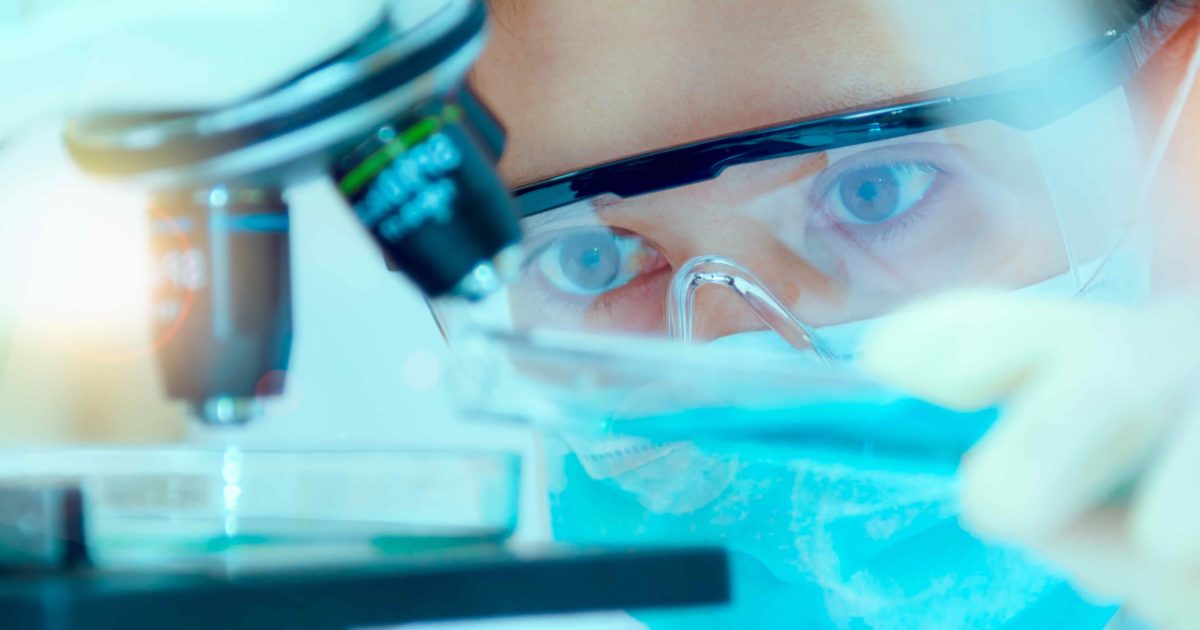A new company is developing molecular technology for a rapid COVID-19 test that is designed to be just as effective in detecting the disease as the currently available variety of tests that are sent to a lab for processing.
New York’s RNA Disease Diagnostics recently got a boost in development efforts with a licensing deal for the underlying sensor technology with UM Ventures, the commercialization arm of the University of Maryland. It shows how tech transfer is playing a role in responding to the pandemic.
Cofounder Allen Chepuri sees the COVID-19 testing landscape as requiring a choice: There’s the rapid test, which makes results available in less than an hour, but isn’t as sensitive, especially as the virus mutates. Or there’s the PCR test — the kind administered by medical pros at public testing sites. It’s considered the “gold standard” for COVID-19 testing, but it must be sent to a lab for processing, so results take more than a day. The company sees its tests in between these two, with the ability to detect COVID-19 in less than 45 minutes.
“We expect a product to be coming out in the market that’s highly sensitive and specific comparable to a PCR, but at the same time it’s quick,” said Chepuri. “And you don’t have to have the expense that’s associated with a lab.”
One product under development is a point-of-care test that could be made available in healthcare settings, airports, nursing homes and other communal-based settings. This device would involve inserting a nasal swab into a cartridge, which is then processed in a device. Another is a test that would be designed for home use.
The technology that was licensed to the company by UM was developed in labs led by Dr. Dipanjan Pan at the University of Maryland, Baltimore and the University of Maryland, Baltimore County. The team also included UMB research associate Dr. Parikshit Moitra and research fellow Maha Alafeef, as well as research specialist Ketan Dighe.
It was already attracting interest, having receiving grants from the National Institute of Biomedical Imaging and Bioengineering for development.
Now, clinical development will continue at the university labs. The company plans to seek emergency use authorization from the U.S. Food and Drug Administration.
Chepuri called the test “a true nanotechnology product,” referring to the branch of technology that deals in tiny particles at the level of individual molecules. It combines chemical biology and engineering concepts to specifically target molecules that are in the N gene of the virus. That’s different from the current rapid test, which looks at a protein.
Chepuri and four other cofounders came together to form the New York-based company, and further develop products for wide release to contribute to healthcare in the pandemic.
“We want to address this pandemic, which is at the top of everyone’s mind,” he said of RNA Disease Diagnostics. “We are convinced that even with the entire vaccine rollout, the need for testing, tracing and quarantining will exist, and we want to be able to try to find ways to save people’s lives.”
The cofounders see the test as a “platform” that can also be applied to other diseases. The prominence of testing in the pandemic has created a “new normal” in responding to diseases.
The company’s combination of technology and meeting the moment of responding to the pandemic resonated with UM Ventures.
“It’s always very exciting to see innovative discoveries from our university system move into the private sector, especially when they can be quickly applied to help address critical medical needs, as is the case with this technology,” said Phil Robilotto, director of UM Ventures in Baltimore.







